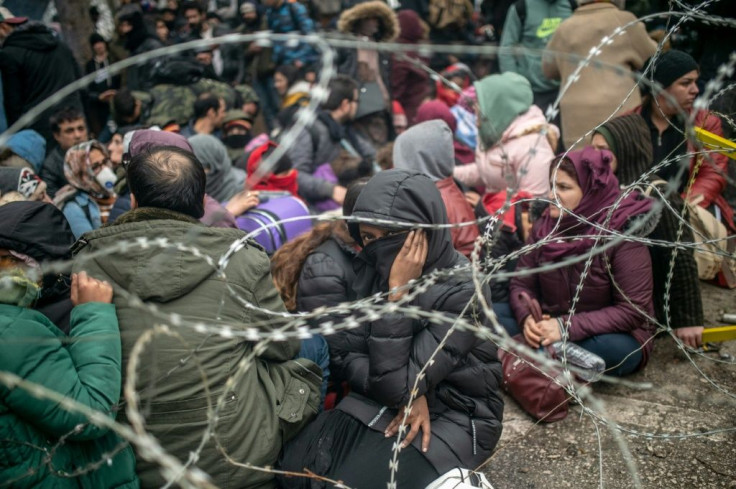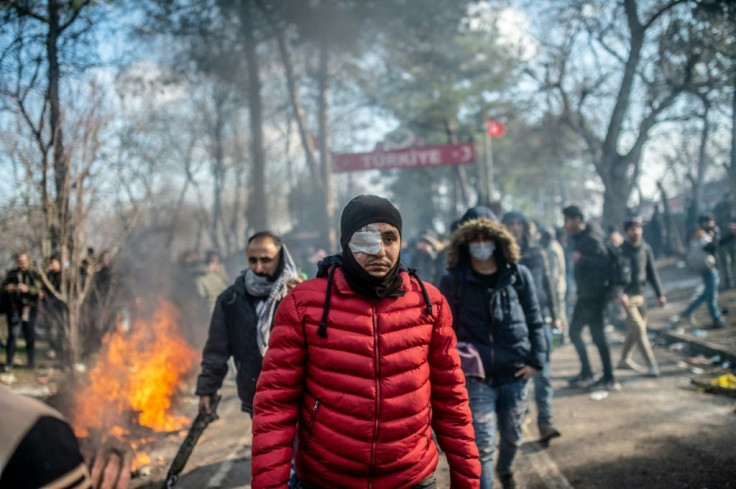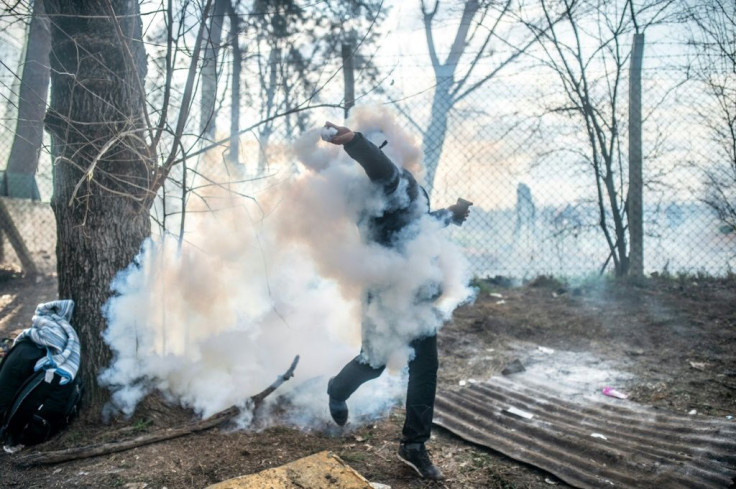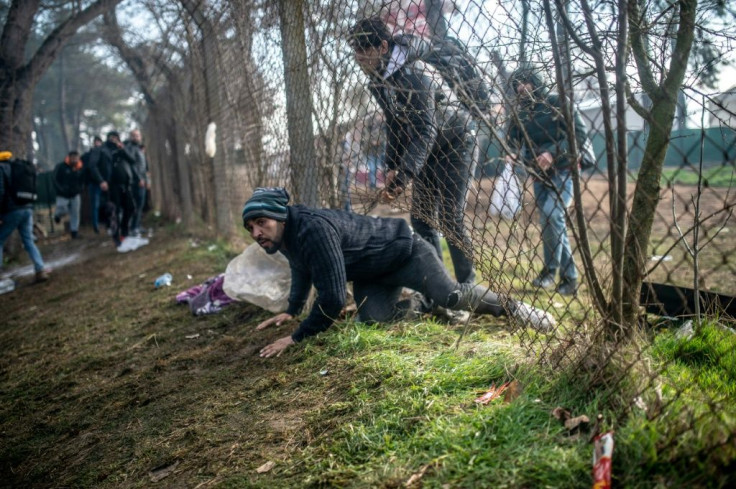'Are We In Greece?': Migrants Seize Their Chance In Europe Quest

Some attempt to cut through a barbed wire fence while others hunt for wood and rocks to throw at police. The thousands of migrants at the Kastanies border town between Turkey and Greece are desperate to reach Europe and furious with Greeks who "won't open the gates".
Hundreds of Greek soldiers and armed police have fired tear gas in an attempt to hold back what they fear could become a flood of people trying to cross the border.
The standoff follows Turkish President Recep Tayyip Erdogan's decision to allow refugees to cross into Europe from Turkey which he says cannot handle new waves of people fleeing Syria. It already hosts 3.6 million Syrian refugees.
A few kilometres from the tense scenes at Kastanies, hundreds of migrants made it into northern Greece, crossing the Evros River which runs along the frontier for 200 kilometres (125 miles).
"Are we in Greece?" asks a young Afghan man walking towards the town of Orestiada in search of a taxi or a train to Athens.
Since Erdogan's unwelcome announcement, armed security forces have patrolled the Greek shores of the Evros -- which has become a common crossing point -- using loudspeakers to warn anyone within earshot not to enter Greek territory. Drones also monitor migrant movements.
But the border area is vast and hard to cover for the surveillance teams.

"Evros river has a huge length and there are some convenient passages," to cross over, explains Christos Metios, regional governor of Eastern Macedonia and Thrace.
"The Greek forces are making efforts, but some migrants can slip through," he told Skai TV.
Border guards union chief Panayiotis Harelas showed journalists a number of Turkish tear gas canisters that he said had been thrown at the Greek forces by migrants.
Some 136 migrants were arrested, according to Greek authorities.

Most of those picked up were young men "mainly from Afghanistan" who were carrying no luggage, a policeman in the area told AFP.
On minor roads straddling the border, groups of refugees walk without stopping to rest. Some have lost their shoes in the river.
They are covered in mud and exhausted as they suffer in the cold and rain, hoping to reach Greece's second city Thessaloniki, which is three hours trudge away, or the capital Athens, where they would seek to contact UN representatives for aid.

"We have been walking for four days," Shadi, a 36-year-old from Iran, tells AFP wearily.
"I want to reach Albania and from there to go to Europe," he adds as he walks near the village of Neo Cheimonio, about five kilometres west of the Turkish border.
Travelling with a group of Afghan and African men, they have no more than the drenched clothes they stand up in.
In the Greek village of Marassia, near the river, cafe owner Popi Katrivezi has never seen anything like it.
"We are used to such situations these last years but never anything like what has happened since Friday. It seems like thousands are coming in from Turkey," she told AFP.
Just a few metres away, some Afghan families, including five children, have found shelter in a chapel.
Worn out and hungry they beg for food and water.
At Pazarkule, on the Turkish side of the border, some 4,000 migrants have massed behind the fence, according to Greek police. Twenty-four hours earlier there were 1,200.
They are mainly Afghans, Syrians and Iraqis.
Some climb trees to get a better look at what's ahead of them, others throw chunks of concrete over to the Greek side.
Some of the migrants who have used up the last of their money to get here.
"We have nothing left, I have no more money. With what I had left, I paid a taxi 1,000 liras (150 euros) to come here from Istanbul. That's why we're outside and we have to warm up by burning wood," Celal, a 20 year-old Afghan man told AFP.
"If they do not open (the border) we will try to cross by illegal means. It's out of question for us to go back to Istanbul," Syrian refugee Ahmad Barhoum said.
Others will wait for Europe's decision.
"We are now sitting at the border but the Greeks refuse to let us in so we are waiting for a decision by the European union's boss Angela Merkel," an Egyptian refugee who asked not to be named said.
"I hope that they will end up letting us in so we can have a new life in Europe worthy of human beings," he added.
© Copyright AFP 2024. All rights reserved.





















